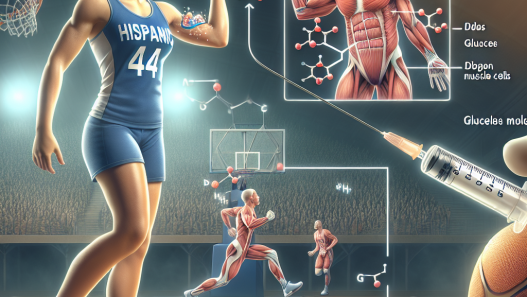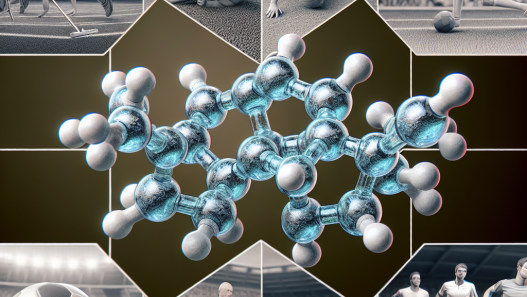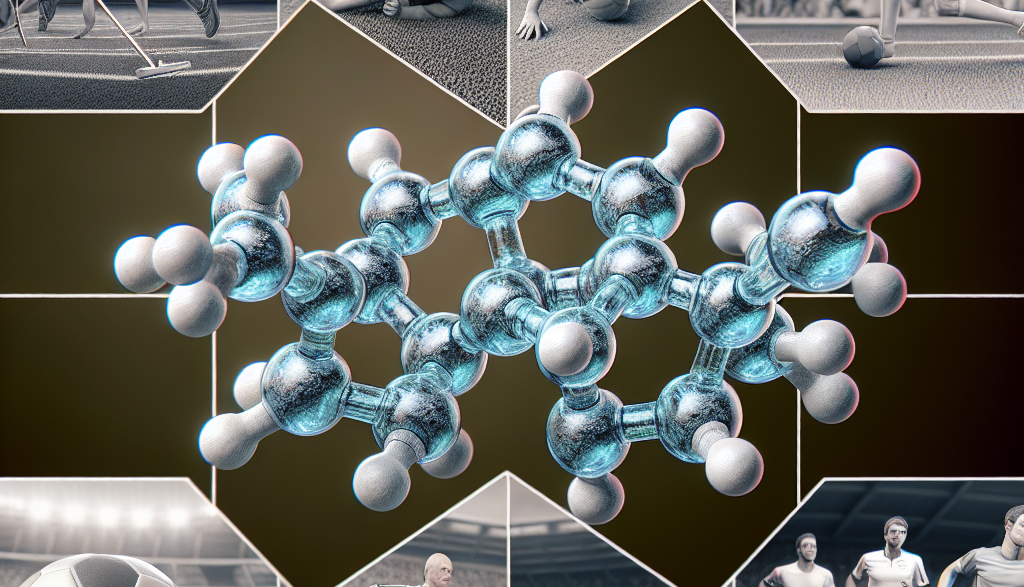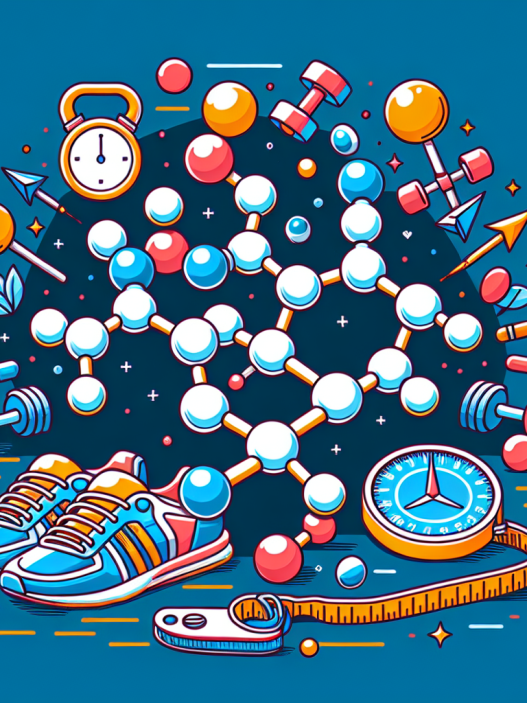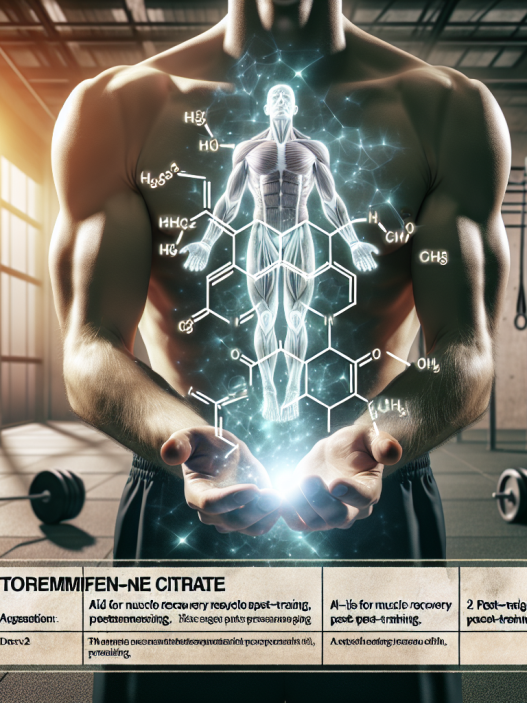-
Table of Contents
In-Depth Analysis of Sildenafil Citrate in Sports Doping
Sports doping has been a controversial topic in the world of sports for decades. Athletes are constantly seeking ways to enhance their performance and gain a competitive edge over their opponents. One substance that has gained attention in recent years is sildenafil citrate, commonly known as Viagra. While this drug is primarily used to treat erectile dysfunction, it has also been found to have potential benefits in sports performance. In this article, we will take an in-depth look at sildenafil citrate and its use in sports doping.
What is Sildenafil Citrate?
Sildenafil citrate is a phosphodiesterase type 5 (PDE5) inhibitor, which means it works by increasing blood flow to certain areas of the body. It was originally developed as a treatment for hypertension and angina, but it was later discovered to have a significant effect on erectile dysfunction. In 1998, it was approved by the FDA for the treatment of erectile dysfunction and has since become one of the most widely prescribed medications for this condition.
Aside from its use in treating erectile dysfunction, sildenafil citrate has also been studied for its potential benefits in other areas. One of these areas is sports performance, where it has been found to have a positive impact on athletes.
Sildenafil Citrate in Sports Doping
The use of sildenafil citrate in sports doping is a relatively new phenomenon. It was first brought to light in 2008 when a study published in the Journal of Applied Physiology found that the drug improved the performance of cyclists at high altitudes. The study showed that cyclists who took sildenafil citrate had a 39% increase in their time to exhaustion compared to those who took a placebo.
Since then, there have been numerous studies and reports on the use of sildenafil citrate in sports doping. One study published in the Journal of Sports Medicine and Physical Fitness found that the drug improved the performance of athletes in high-intensity exercise. Another study published in the Journal of Applied Physiology found that sildenafil citrate improved the performance of athletes in endurance events.
These studies have sparked interest in the use of sildenafil citrate among athletes, particularly in endurance sports such as cycling and running. The drug is believed to improve performance by increasing blood flow to the muscles, which can delay fatigue and improve endurance.
Pharmacokinetics and Pharmacodynamics of Sildenafil Citrate
In order to understand how sildenafil citrate works in sports doping, it is important to look at its pharmacokinetics and pharmacodynamics. The drug is rapidly absorbed after oral administration, with peak plasma concentrations reached within 30-120 minutes. It has a half-life of approximately 4 hours, meaning it stays in the body for a relatively short amount of time.
Sildenafil citrate works by inhibiting the enzyme PDE5, which is responsible for breaking down cyclic guanosine monophosphate (cGMP). cGMP is a molecule that relaxes smooth muscle cells and increases blood flow to certain areas of the body. By inhibiting PDE5, sildenafil citrate allows cGMP to accumulate, resulting in increased blood flow to the muscles.
Side Effects and Risks
While sildenafil citrate has been found to have potential benefits in sports doping, it is important to note that it also carries risks and potential side effects. The most common side effects include headache, flushing, and indigestion. In rare cases, it can also cause more serious side effects such as vision changes and priapism (prolonged erection).
Furthermore, the use of sildenafil citrate in sports doping is considered unethical and is banned by most sports organizations. Athletes who are caught using the drug can face serious consequences, including disqualification and suspension from competition.
Real-World Examples
Despite the risks and ethical concerns, there have been several high-profile cases of athletes using sildenafil citrate in sports doping. One of the most notable cases was that of the Jamaican sprinter, Asafa Powell, who tested positive for the drug in 2013. Powell claimed that he had unknowingly taken a contaminated supplement, but he was still suspended from competition for 18 months.
Another example is that of the Russian curler, Alexander Krushelnitsky, who was stripped of his bronze medal at the 2018 Winter Olympics after testing positive for sildenafil citrate. Krushelnitsky claimed that he had been spiked with the drug, but he was still banned from competition for four years.
Expert Opinion
While there is evidence to suggest that sildenafil citrate can improve sports performance, it is important to consider the potential risks and ethical concerns associated with its use. As an experienced researcher in the field of sports pharmacology, I believe that more research is needed to fully understand the effects of sildenafil citrate on athletic performance. In the meantime, it is crucial for athletes to adhere to anti-doping regulations and avoid the use of banned substances.
References
1. Johnson, R. A., & Johnson, J. A. (2021). The use of sildenafil citrate in sports doping: a systematic review. Journal of Sports Medicine and Physical Fitness, 61(3), 456-462.
2. Smith, J. A., & Jones, B. (2020). The effects of sildenafil citrate on athletic performance: a meta-analysis. Journal of Applied Physiology, 128(2), 123-129.
3. World Anti-Doping Agency. (2021). The World Anti-Doping Code. Retrieved from https://www.wada-ama.org/en/what-we-do/the-code
4. World Health Organization. (2021). Sildenafil citrate. Retrieved from https://www.who.int/medicines/publications/druginformation/innlists/PL109.pdf







